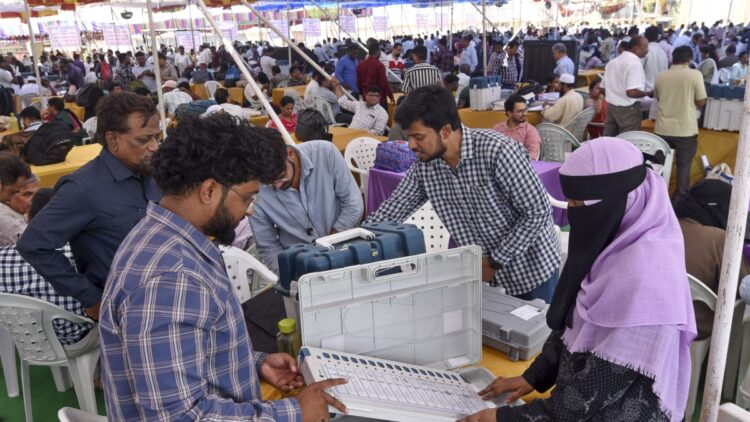Voting (file photo)
Local elections are being held in a total of 191 seats in Gujarat. These include a total of 66 municipalities including Junagadh. Apart from this, voting is being held on Sunday for the election of three taluka panchayats including Gandhinagar. By -elections are also being held simultaneously for 124 seats of Botad and Vankaner municipalities and 124 seats of other local and urban bodies urban bodies due to various reasons. This is the first election match for local bodies, where 27 percent seats in panchayats, municipalities and civil corporations have been reserved for the Other Backward Classes (OBCs) as per the decision of the Gujarat government in 2023.
A total of 5,084 candidates are in the fray and more than 38 lakh people are eligible to vote in these local body elections. According to the State Election Commission, the polling started at 7 am and will run till 6 pm.
The counting of votes will take place on 18 February.
Polling is not being held in 213 seats
There will be no polling in 213 seats of various local bodies. In these seats, only one candidate of the ruling BJP is left in the election field, all others have withdrawn their nominations. These include eight seats out of 60 seats in 15 wards of Junagadh Municipal Corporation, where only BJP candidates are left in the fray after rival Congress and other candidates are removed from the election ground. The BJP has said that its victory is certain in the four municipalities of Bhachau, Zafarabad, Bantwa and Halol. The number of candidates winning the uncontested election in these municipalities is more than the majority figure.
BJP rejected Congress claims
The Congress claimed that its candidates were threatened with withdrawal of nominations, which the BJP denied. The Gujarat government in August 2023 in Justice (retired) K.S. Based on the report of the Jhaveri Commission, the OBC quota boundary in municipal corporations, panchayats and municipalities increased the boundary from the last 10 percent to 27 percent. The existing reservation in local bodies for Scheduled Castes and Scheduled Tribes remained unchanged at 14 percent and 7 percent respectively, making the total quota within 50 percent limit.
The Jhaveri Commission was established in July 2022, when the Supreme Court ruled that reservation for OBCs should be based on their population. The panel collected and analyzed data about the nature and implications of backwardness in local bodies, which was necessary to fix the OBC quota in the elections of local self -government institutions. (Input-PTI)









